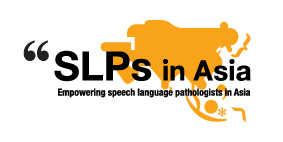Brief History of SLP development
The history and development of the speech-language pathology profession in Vietnam has been well documented in several reports (Atherton et al., 2013; 2017; 2020; Lee, 2021). The first SLP service in Vietnam served children with cleft palate in 1972. This intervention was given by Pat Landis, an SLP from the U.S. The SLP service for cleft palate children continued with support from SLPs affiliated with Operation Smile, a non-profit organization based in Norfolk, VA (Ducote, 1998; 2001). Charlotte Ducote reported that during the time she volunteered only a few people in Vietnam held the title of speech therapist, and none had a speech-language intervention degree. Since the need for speech pathology services was acknowledged by the healthcare industry, medical doctors (e.g., otolaryngologists, craniofacial surgeons), nurses, or other healthcare professionals (e.g., physical and occupational therapists) started to provide services for individuals with communication disorders with training offered by visiting international speech-language pathologists or other Vietnamese colleagues with independently acquired skills (McAllister et al., 2010). Cheng (2010) reported that hospitals and clinics in Hanoi have offered workshops in speech therapy since 2002.
Education
In 2008, Sue Woodward, an SLP from Australia, and Dr. Nguyen Thi Ngoc Dung at the Ho Chi Minh City ENT Hospital collaborated on a speech therapy education program. Dr. Dung was exposed to speech therapy as an otolaryngology intern in France. After she returned to Vietnam, Dr. Dung opened a six-week short course at Pham Ngoc Thach (PNT) University of Medicine, HCMC in 2009 (McAllister et al., 2010), which was the first non-degree training program. In 2010, Dr. Dung opened a two-year post-graduate speech therapy training program at PNT University with support from Trinh Foundation Australia (TFA) and Australian SLP volunteers. This non-degree training program trained 33 graduates in two cohorts (2010-2012 and 2012-2014).
Although universities have begun to offer speech therapy education in Vietnam, a number of non-degree training programs are concurrently offered by universities, public hospitals, and even private clinics. Three universities, endorsed by the Ministry of Health, currently offer a degree program of rehabilitation therapy where speech therapy courses are taught in Vietnam. These universities are Da Nang University of Medical Technology and Pharmacy and Hai Duong Medical University that offer a four-year bachelor’s program, while the University of Medicine and Pharmacy in HCMC offers a two-year master’s program. The purpose of the master’s program at the University of Medicine and Pharmacy at HCMC is to produce future educators to teach in bachelor’s degree programs in Vietnam. These degree programs cover most aspects of speech and language pathology across the lifespan including speech, language, voice, fluency, dysphagia, and multimodal communication. Clinical practicums include 22 weeks of supervised clinical placement to obtain around 750 clinical clock hours. These programs have been managed through multilateral memorandums of understanding between the funders (U.S. Agency for International Development, Viet Health, the Medical Committee of Netherlands Vietnam, and TFA). However, until 2024, their degrees are not “bachelor’s or master’s in speech therapy”. Instead, they are under “rehabilitation therapy” including physical therapy, occupational therapy, and speech therapy.
Among the many non-degree certificate SLP programs in Vietnam, two significant programs provide a relatively more extensive course of study covering the major aspects of speech-language pathology. PNT University of Medicine offers a one-year certificate in pediatric speech therapy. The curriculum includes both basic and clinical courses. Students also undertake clinical practice under supervision. Hue University of Medicine and Pharmacy offers a nine-month certificate program with support from the Korean International Cooperation Agency (KOICA) and Jeonbuk National University, South Korea. The Hue University program includes six months of clinical training and three months of intensive coursework covering the primary subject areas (e.g., language development, phonetics, speech/hearing sciences) and major disorder areas (e.g., pediatric speech or language disorders, adult neurogenic communication disorders).
